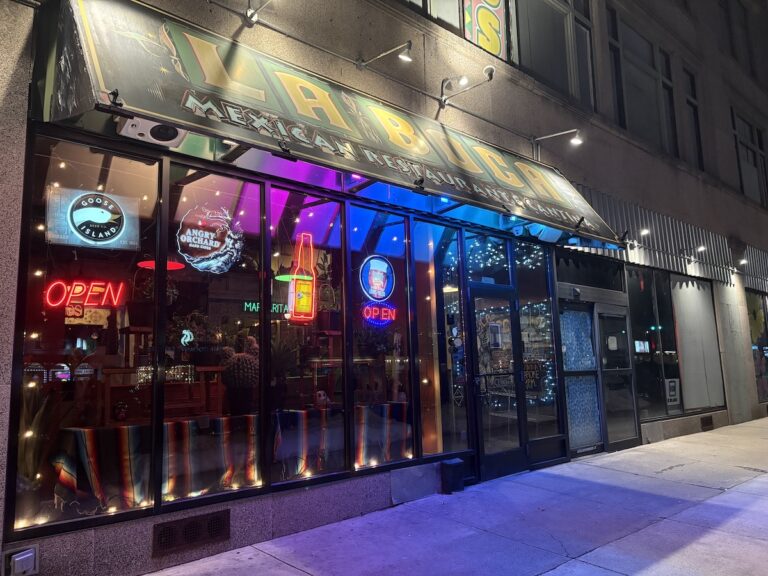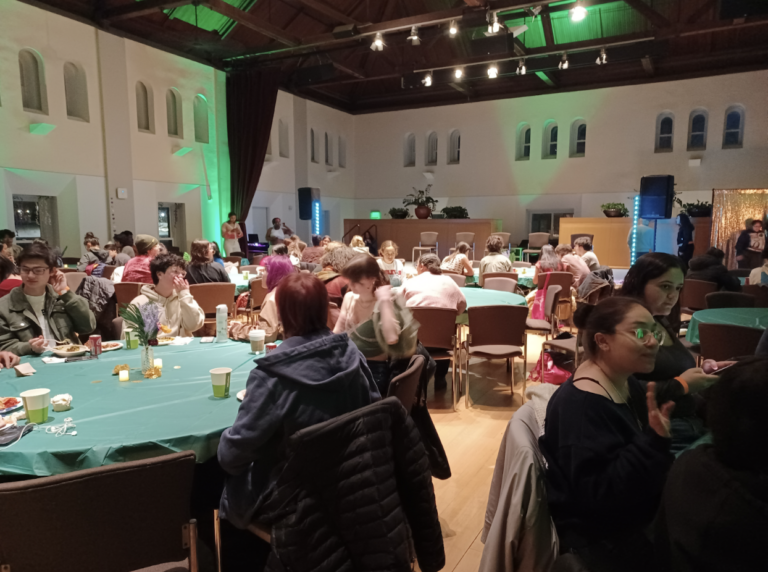Notes from abroad: Beerfest!
Fall in Europe looks suspiciously like fall in the United States: leaves are changing; farmers are hauling their harvests to cities for sale; overcoats appear; and people seek refuge from the freezing darkness in bustling cafés—the days are getting shorter. But, far from being a depressing successor to summer, the first three weeks of autumn play host to the greatest party ever to be invented by a German: OKTOBERFEST.
Oktoberfest might seem to be a superfluous subject for a writer who’s supposed to look for inspiration in the non-stop city of Amsterdam. Furthermore, if you were to ask a Dutchman for ein (German for “one”) broodje, he would glare daggers at you, possibly correct you and hand you een broodje. In my defense, a) Oktoberfest is the most anticipated party of the year even in this city, with the exception of Queen’s Day and b) Queen’s Day isn’t until next semester.
Understand, I’m talking about the Oktoberfest, in the capital of beautiful Bavaria, Munich. Six million people attend this event each year. Now I am one of them. In order to realize the fantasy of going, I first had to get there. Enter my German friend Moritz, who agreed to drive three Americans through his homeland in a rental car. The method sounds simple enough, but when you consider the size of the car—a tin can, really—and the route we were taking—the notorious Audubon—you can imagine the effect on my delicate American nerves. Driving from the German border to Munich at over 100 mph, crammed into an interior the size of the Barbie mobile’s interior and listening to American 90s pop on the German radio was an experience about which I certainly won’t be forgetting any time soon.
Finding a place to stay in Munich during the weeks of Oktoberfest is quite a challenge, as evidenced by our accommodations: a tent in the Olympic horse stadium, which for three weeks becomes “Weis’n Camp.” The experience of camping with about 500 international revelers is pretty amazing, until you are made aware of the stadium’s alternative use as a giant toilet. Our enlightenment to this fact came during the initial search for our tent, when we stumbled upon two Americans relieving themselves about five feet from its entrance. Weis’n Camp offered us a more pleasant surprise when we ran into—I kid you not—the Wesleyan crowd from Bologna (plus Johan, the loveable Swede who was at Wesleyan during our freshman year).
Walking through the gates of Oktoberfest evokes the experience of entering an American fairground, if said fairground had gotten drunk and married a German beer distributor in a Bavarian Las Vegas. Along with circus-sized tents, each servicing many thousands, you find multiple outdoor beer gardens, beer stands and booths serving any snack that you could conceivably pair with beer—prez’n, candied nuts, pommes frites. If you need a schnitzel fix, Oktoberfest has got you covered. Another feature of the grounds that both amused and baffled me was the assortment of rides, which seemed to be designed to cause epic bouts of nausea. What place these rides have at a drinking festival, we may never know.
We of course had to drink a mass (a one-liter stein) in one of the enormous, jam-packed tents. We had only been sitting at our hard-won table (no seat, no service) for about ten minutes when everyone in the tent turned expectantly toward the bandstand. As we watched in awe, five musicians in traditional Bavarian dress, each carrying their own mass, marched onto the stage, formed a line facing the audience, and proceeded to chug the entire liter of beer in about fifteen seconds. So, not only do you need to be a good musician to make it in Bavaria—you need to be a good musician after having drained a mass. Not every pilgrim to Oktoberfest can hold their liquor so well: everywhere within the fairgrounds, passed-out partiers litter the streets, the tables, really any spot able to accommodate those who have had a bit too much fun.
If you ever decide to attend the festival, I would recommend participating in as many Bavarian traditions as possible. If you identify as a “she,” you’re going to be very unhappy/jealous if you forget to wear your dirndl (dress that, ahem, accentuates the cleavage). If you don’t have a traditional costume, you can wear another tradition in the form of a lebkuchenherzen (traditional heart-shaped cookie, strung with a ribbon and worn around the neck). I instantly fell in love with mine, which reads “fur mein sexy cowgirl.” You can translate that on your own.
My only regret from our weekend at Oktoberfest is being American and knowing no drinking songs. We really do miss out on a lot by their absence in modern American culture, not to mention our appearance as lightweights on the international drinking scale. We even met Canadians with drinking songs. Canadians! I move that we immediately cop songs from other cultures; I’ll even get you started. Zum mitte, zum titte, zum zak, zak, zak! Proost!







Leave a Reply